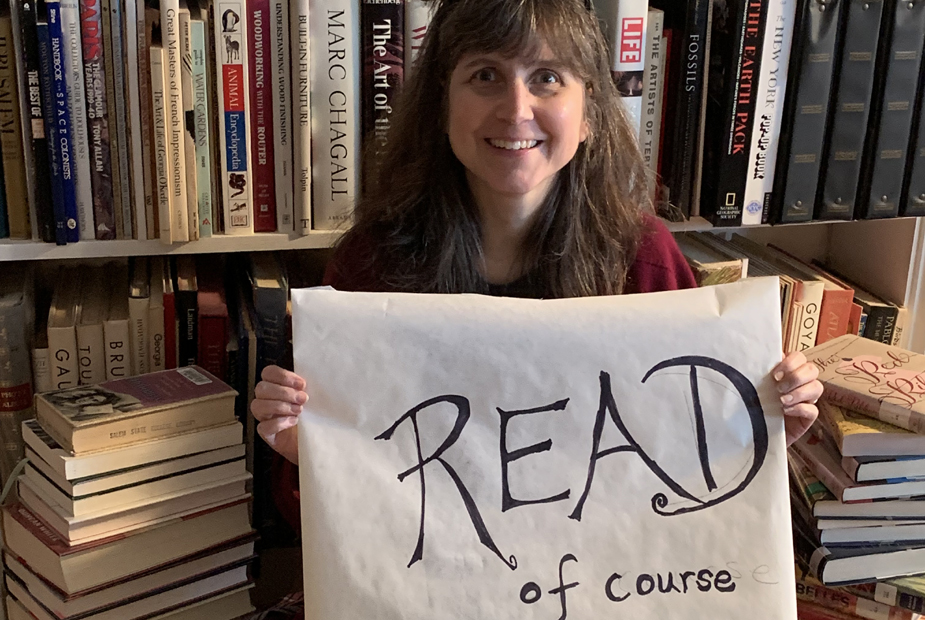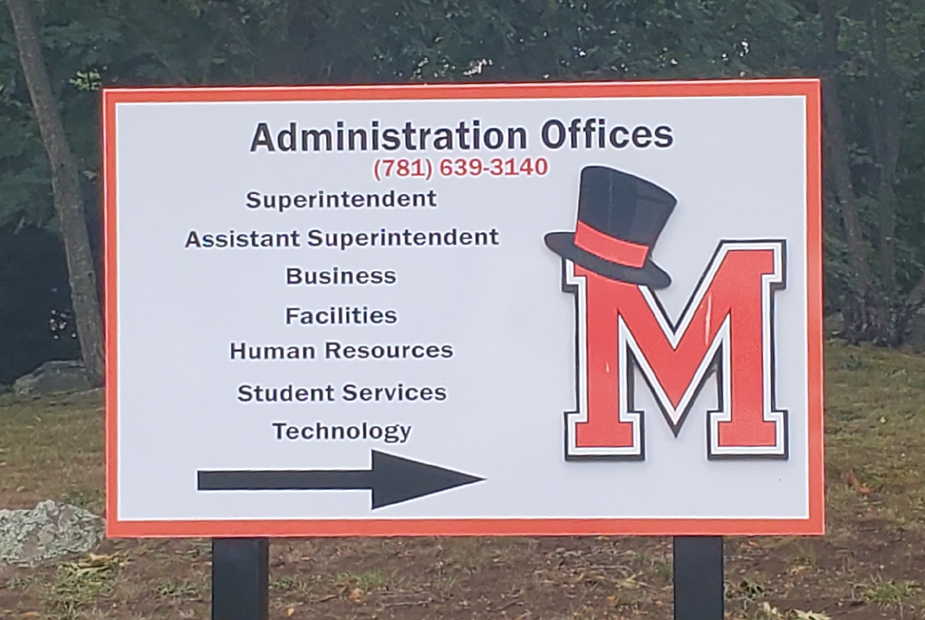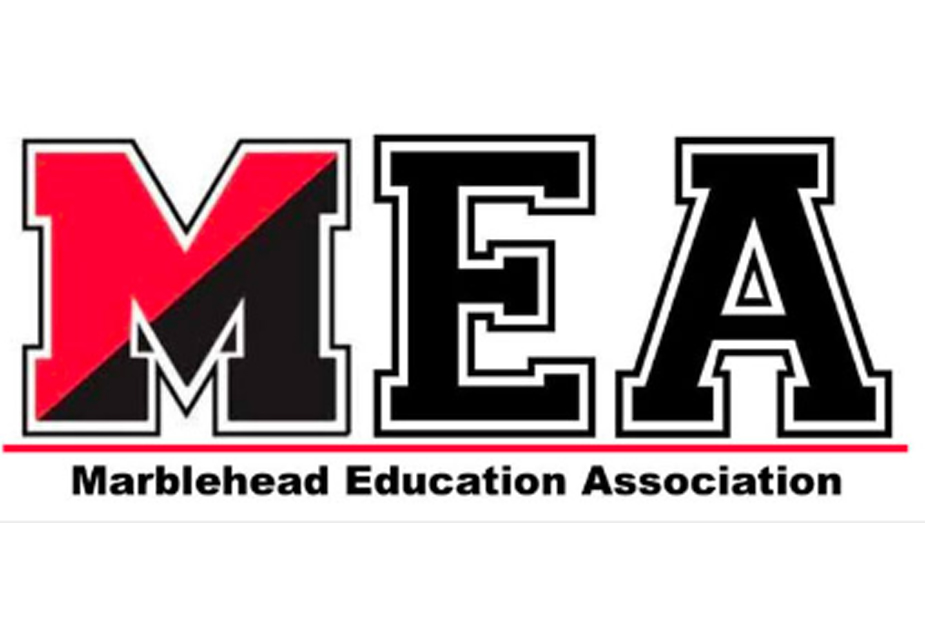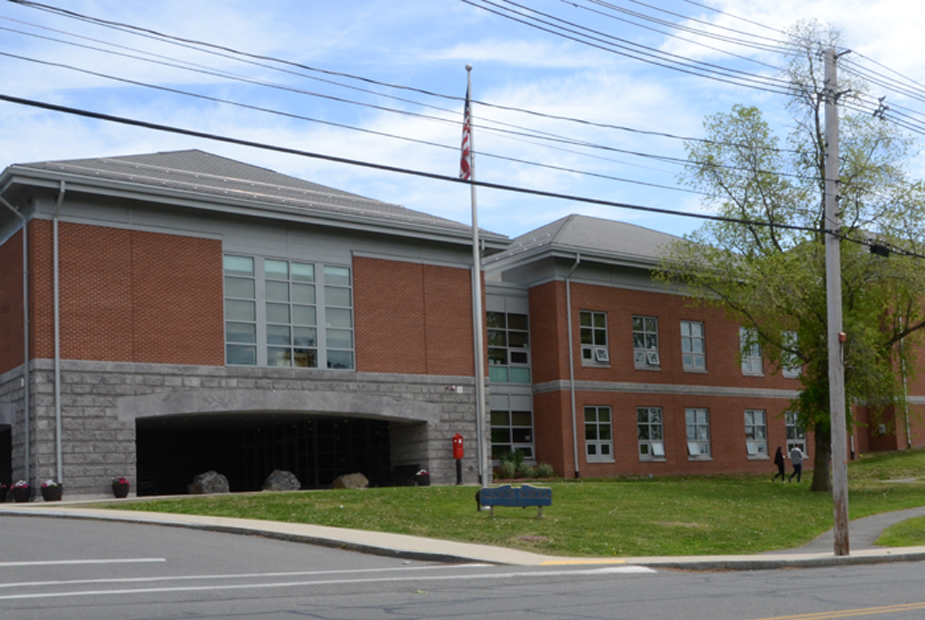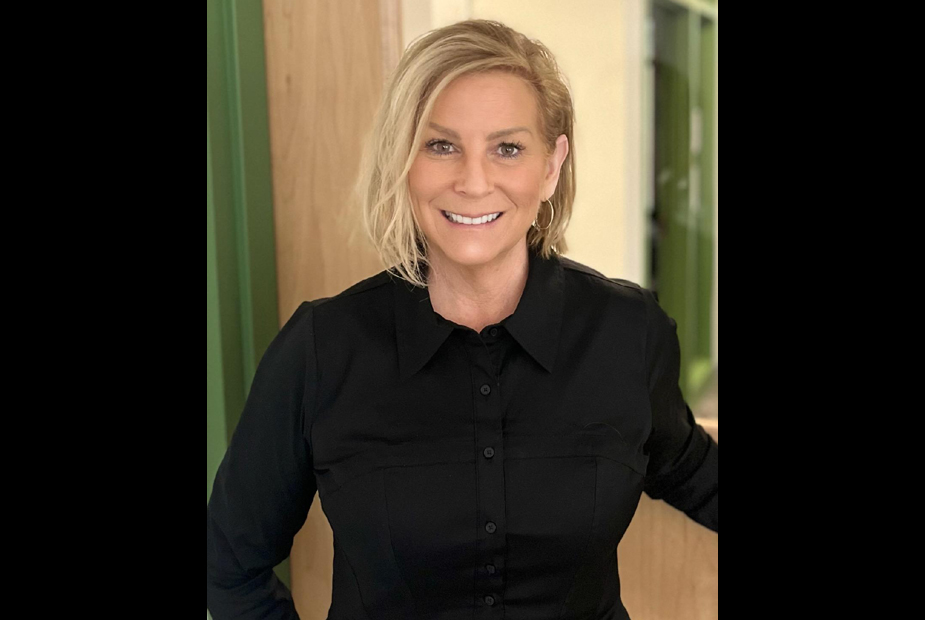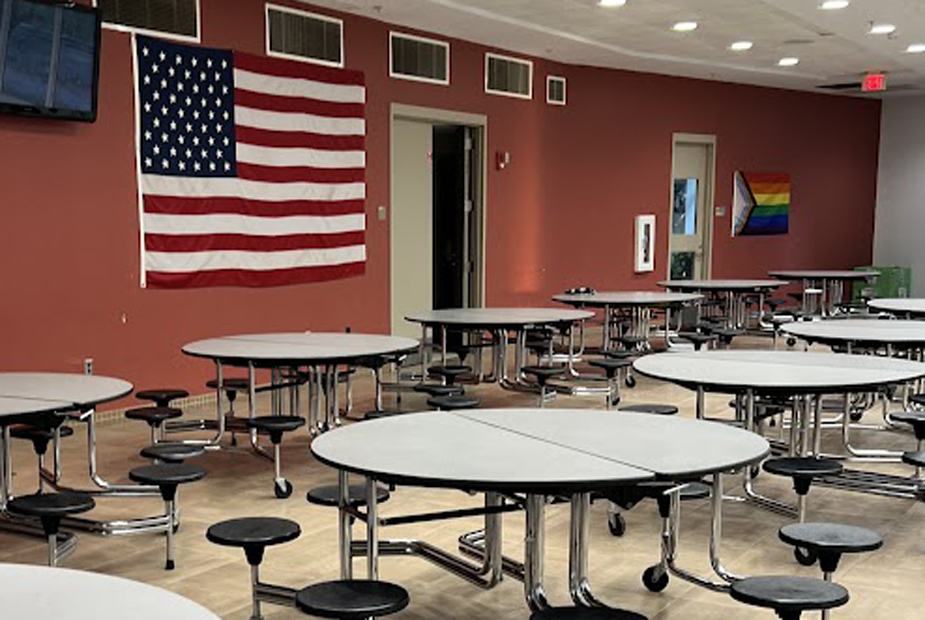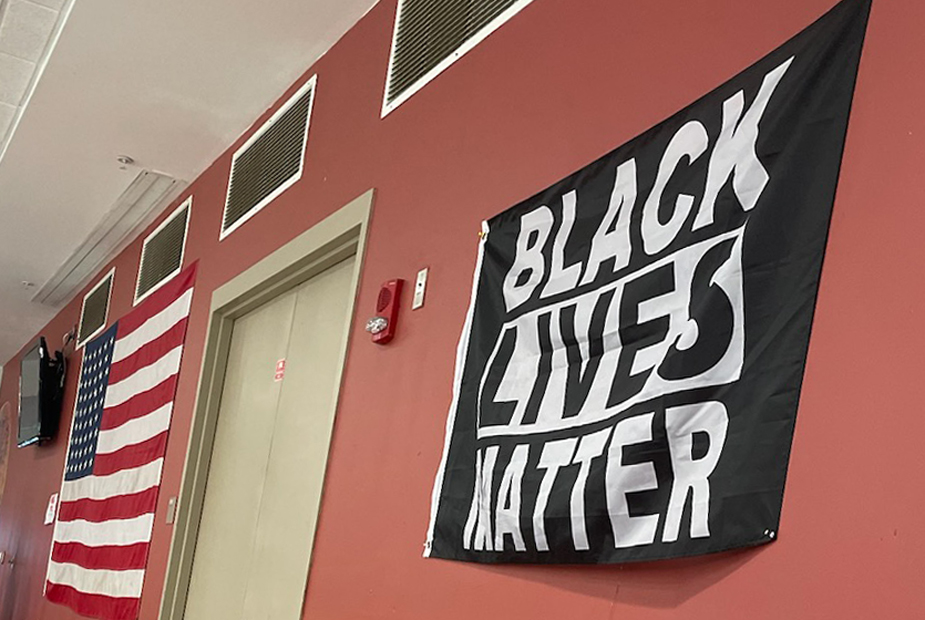Book Controversies, Vaping, and Literacy Concerns: Perspectives From Marblehead's Former Middle School Librarian
When she started working at the Veterans Middle School library in 2009, Elizabeth Lutwak says, students were fighting over copies of The Lightning Thief, the 500-page-long first book in Rick Riordan’s popular Percy Jackson series. “We fortunately received a grant to buy books that were a part of series, so I was able to get ten copies,” Lutwak says. “But I would hesitate to order a 500-page book now,” she adds, because “it is so hard to get the kids to read.”
Marblehead Beacon spoke to Lutwak to discuss her perspectives on all things book-related after she was featured in a July 2023 Boston Globe article about book bans. The article’s author, Shira Schoenberg, described a recent debate that took place on Marblehead-related social media about the types of books that should be included on the shelves of a school library designed for middle school students.
Lutwak notes that there have in fact been several occasions on which her judgment about appropriate book choices has been called into question. “I was actually called a groomer on Twitter for defending The Diary of Anne Frank,” she says. The recent Marblehead controversy centered on a book called Gender Queer, a graphic novel by Maia Kobabe that includes images depicting explicit sexual activities. Then Superintendent of Schools John Buckey emailed Lutwak in response to the online discussion, she says, asking to know if this book was in fact part of the Veterans Middle School collection. “My first response was concern that none of my administrators know how to use an online catalog,” Lutwak says, noting that the library catalog is readily available on the internet. Her second response was to explain that it is a librarian’s responsibility to tailor the collection to the population he or she serves. “Is [Gender Queer] appropriate for a school library?” Lutwak asks, “Not in my opinion.” However, she hastens to add, this doesn’t mean that there shouldn’t be books about transgender youth and other similar topics in a middle school library. “Do I have transgender students? Yes,” she says, “Is it a relief that they are finally including things that represent them? Yes.”
At the same time, Lutwak recognizes the important role parents play in guiding their children’s reading choices. “Books that are controversial are not required reading,” she notes, and “every parent has always had the right to say, ‘I don’t want my kid to read this.’” Still, Lutwak takes great exception to any movement that seeks to ban books in too broad a way. There are organizations today, she explains, that are advocating for the removal of long lists of books, including all those related to particular topics. In order to start the process of removing a book, Lutwak says, a parent or other interested party should have to answer some key questions such as “Have you read the book?” and “What specific issues do you have?”
Lutwak tried for many years to implement an official policy addressing challenges to library materials in Marblehead, she says. Finally adopted in September 2022, the policy provides a comprehensive Request for Reconsideration of Library Materials Form that anyone seeking to remove a particular title must complete. If the building principal determines that the complaint is sufficient, he or she convenes a Library Materials Reconsideration Committee tasked with issuing a ruling, taking into account the American Library Associations’ Library Bill of Rights. The committee’s decision may be appealed to the School Committee.
“I would approach any challenge with an open mind,” Lutwak says, because “the job of a librarian is to present both sides and serve as a neutral arbiter.” At the same time, she hopes community members will remember that students, particularly those in 7th and 8th grade, have a widely divergent set of interests and capacities. “I have twelve year olds going on 35,” she says, “and 15 year olds going on eight.” She also advises parents that the best thing they can do is to be involved in regular conversations with their children. “My best advice is, if your kids want to read a book you aren’t comfortable with, read it with them,” she says. She also expresses her frustration with parents who are “putting the internet in their kids’ back pockets,” yet complaining about books that are on the shelf at the library. Most of the time, she says, the real challenge is getting the kids to read anything at all. “They are losing their ability to focus for longer than the length of a TikTok video.”
Lutwak’s frustration with the current state of education is palpable. On the one hand, she says, parents are not fulfilling their responsibilities. The kids come to school without any sense of respect for authority, she says. “You’re lucky if you can get them to bring a writing implement to class.” At the same time, the school administration is hesitant to upset parents or demand too much of students. “I’m stunned at what Vets was when I got there and what it is now,” Lutwak says.
She points specifically to the emphasis on testing, describing the overwhelming focus on achieving higher scores on the i-Ready testing system that was implemented at Vets two years ago as well as the Massachusetts Comprehensive Assessment System (MCAS), which is mandated statewide. “Kids are reduced to test subjects,” Lutwak says. And poor readers, she notes, are pulled out of the classes scheduled for reading time to do test prep instead. “The only way to create readers is to give them time to read,” Lutwak explains. She is also extremely concerned about the elimination of the 8th grade research paper, long a right of passage for Veterans Middle School students preparing to embark on their high school careers. “The high school is already complaining about the loss of preparation of these students,” she says.
Lutwak took a somewhat circuitous path to her role as the Marblehead Veterans Middle School librarian. After college, she started a PhD program in analytic philosophy at MIT, but soon realized it was too esoteric and not a good fit. She worked for a time at publishing house Houghton Mifflin and at pharmaceutical company Biogen before eventually landing in law school, which she found offered an ideal combination of her interest in philosophy and practical, real-life applications. After graduation, Lutwak practiced law for 15 years, primarily in the criminal defense arena. “It is one of the few areas of the law that enables you to play with the constitution on a regular basis,” she says, noting that whether or not we treat the accused as human beings reflects the type of society we want to be.
After settling in Marblehead with her husband and two children, Lutwak began volunteering at the Glover School library and eventually returned to school to obtain the necessary license to work as a school librarian. “Ne’er do wells have always been a soft spot for me,” she says, adding, “I thought it would be better to catch them early on rather than dealing with them later after a criminal accusation.”
Lutwak’s enthusiasm for her students is evident. “I am so grateful that I landed in middle school,” she says. “I love that age group. They are starting to have independent thoughts. We all know that middle school is one of the hardest transitions. It was my job to get kids through this sometimes horrible time of life.”
Lutwak’s contributions have ranged broadly, she explains, from bringing in thousands of dollars in grant money to handing out student belongings when the school shut down abruptly due to Covid. “Every time they asked, I said yes,” she says. She also played a pivotal role in making the library a popular gathering place in the mornings before school. Back in 2010, soon after Lutwak was first hired as the Veterans Middle School librarian, she asked then-Principal Libby Moore whether she could open the library from 7:30 to 8:00 a.m. It would give students a place to be in the morning, she reasoned, meshing better with their needs. “The library is a place you can be by yourself and not be a weirdo,” she says, noting that those mornings in the library over more than a decade became one of “her favorite things,” with around 100 kids turning up every day.
Unfortunately, the morning library initiative that Lutwak enthusiastically championed turned out to be the source of her career's unexpectedly abrupt conclusion. She started noticing the scent of vapes lingering in one of the small library rooms after a group of students departed each morning. “Vaping is just a persistent problem in middle school,” Lutwak says, and she was concerned not only because vaping is obviously against school rules but because it poses such a risk to children. “I’m a bit of an expert on nicotine addiction,” Lutwak explains, noting that she herself was a smoker for many years and even now uses nicotine gum to counteract the cravings. “It is an addictive drug.”
On a spring morning earlier this year, Lutwak says, she decided to take action. She walked into the small library room where she had been smelling vape residue, closed the door, and told the kids she knew what was going on, and that it needed to stop. “Only a stupid moron would start vaping nicotine in 2023,” Lutwak recalls saying, and it was those words specifically that would come back to haunt her.
According to Lutwak, she was soon confronted for her word choice by Middle School Principal Matt Fox, and she also learned at that time that some of the students had recorded her interaction with them. “It is illegal in Massachusetts to record without permission,” Lutwak notes, and she says she was stunned to discover that the school administration was more concerned with the way she had spoken than with the fact that students were vaping in school and had made and posted an illegal recording.
Eventually, despite conversations that eventually included then-Superintendent Buckey and representatives from the teacher’s union, Lutwak never returned to her role as librarian. While she had already planned to retire at the end of the 2022-2023 school year, the nature of her departure two months early left her with a profound sense of sadness and not a little bit of anger. “I can’t begin to tell you how demoralizing this situation is,” she says. “I lost two months of my salary, my pension was negatively impacted, and there were kids running around school saying they got me fired.”
Lutwak notes that she decided to tell her story both to help process some of the grief she is feeling and to issue a wake-up call to the Marblehead community. She notes that she is “astonished at the way teachers are treated,” and worries that the schools are being run in such a way as to “keep them in a perpetual state of fear” over losing their jobs. She worries about the students as well, noting that they are not being well served by the existing state of education. They aren’t being challenged or prepared for the future, she contends, and the expectations are too low. Even getting rid of the phones in school would be a tremendous improvement, she says. “Do you know how much time a day teachers spend on dealing with phone issues?”
Lutwak notes that, for teachers and students alike, it often seems like “all the joy is gone.” Most teachers are afraid to speak up, but Lutwak notes she is now in a unique position. She no longer has a job to lose, and if she can, she’d like to do whatever is possible to help the remaining teachers and the students who are relying on them. She spoke out about the vaping situation “from a place of love,” she says, and she will continue speaking out if there is a chance it can make a difference.
For now, Lutwak’s biggest concern is that the role she used to fill at Veterans Middle School remains empty. In the wake of the defeat of the override this past June, the librarian position – already empty due to Lutwak's departure – was one of those slated to be cut. “I don’t think Marblehead has ever gotten rid of librarians before,” Lutwak says, though she notes that many other local communities have already removed all of their librarians except those serving at the high school level. Without a certified librarian on staff, she continues, the school is at risk of losing access to a significant range of online resources, including an online ebook platform called Sora and a variety of research databases. I tell the kids that, as they move forward in their academic lives, “Google isn’t going to cut it,” she says. Noting how time consuming it was for her to maintain the library, manage database subscriptions, get necessary funding, order new books, and supervise students, she worries about how the library is being kept up in her absence. “My focus now,” she says, “is on trying to get them to reinstate that position.”

